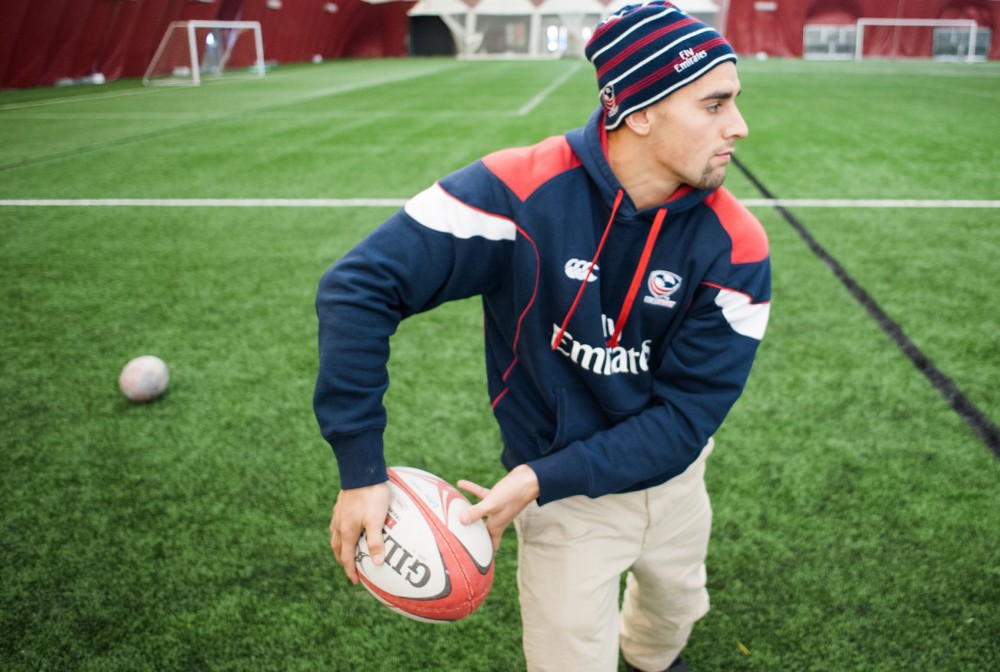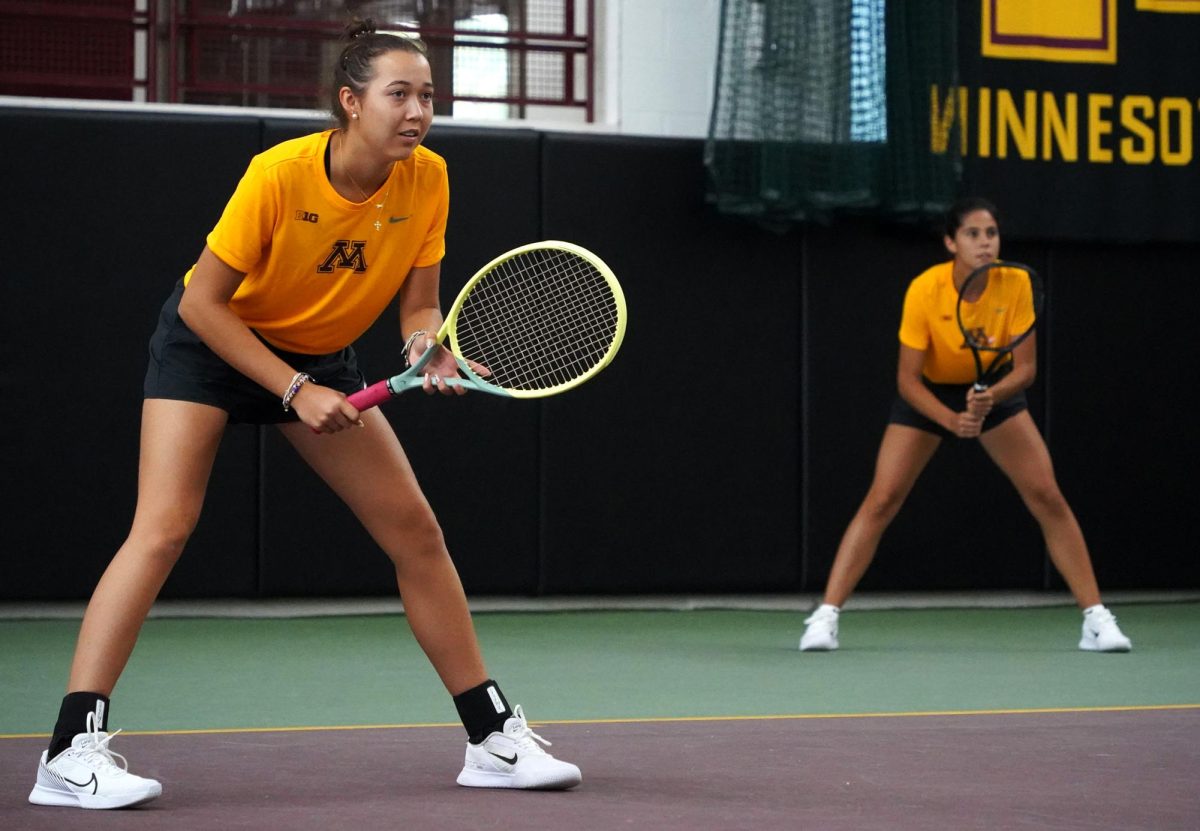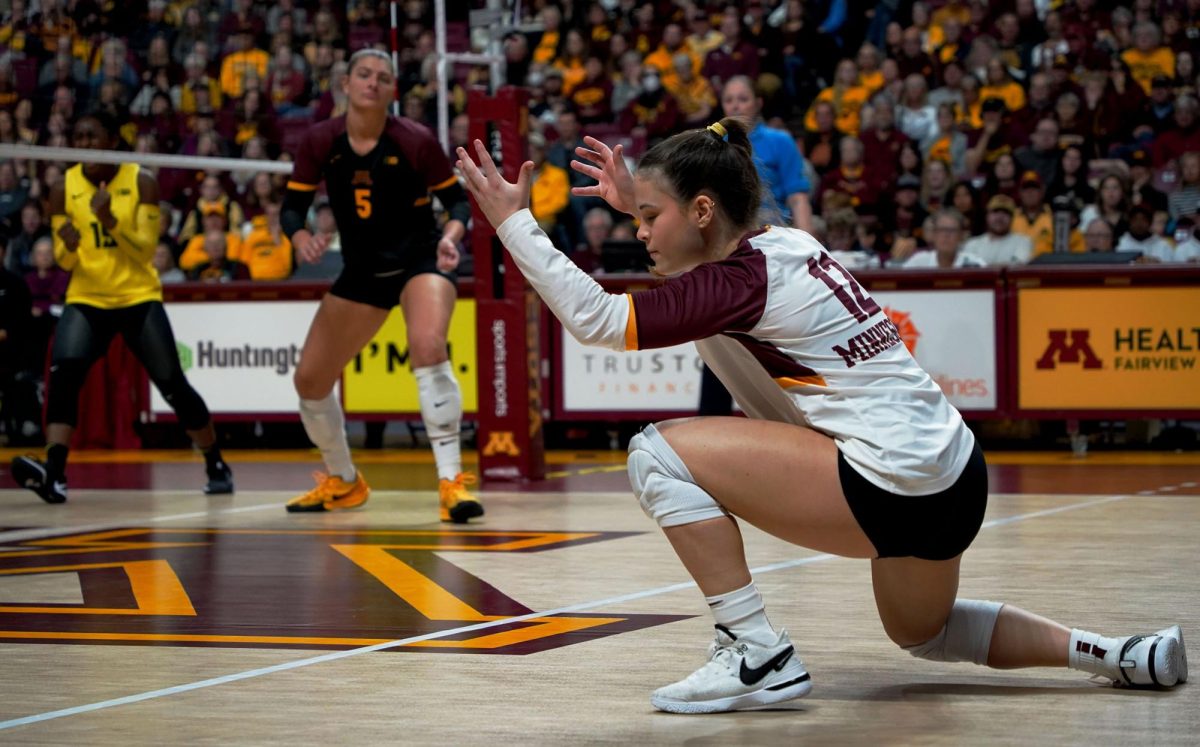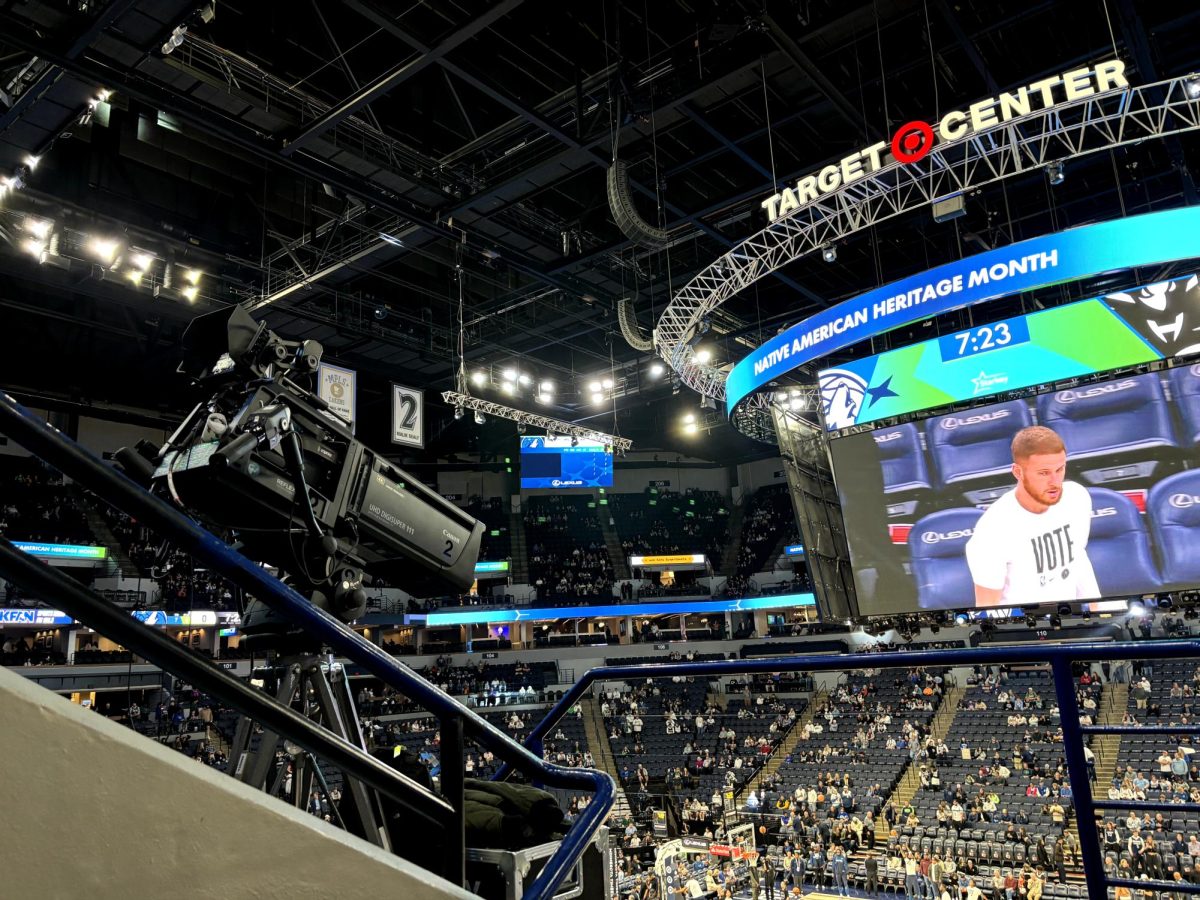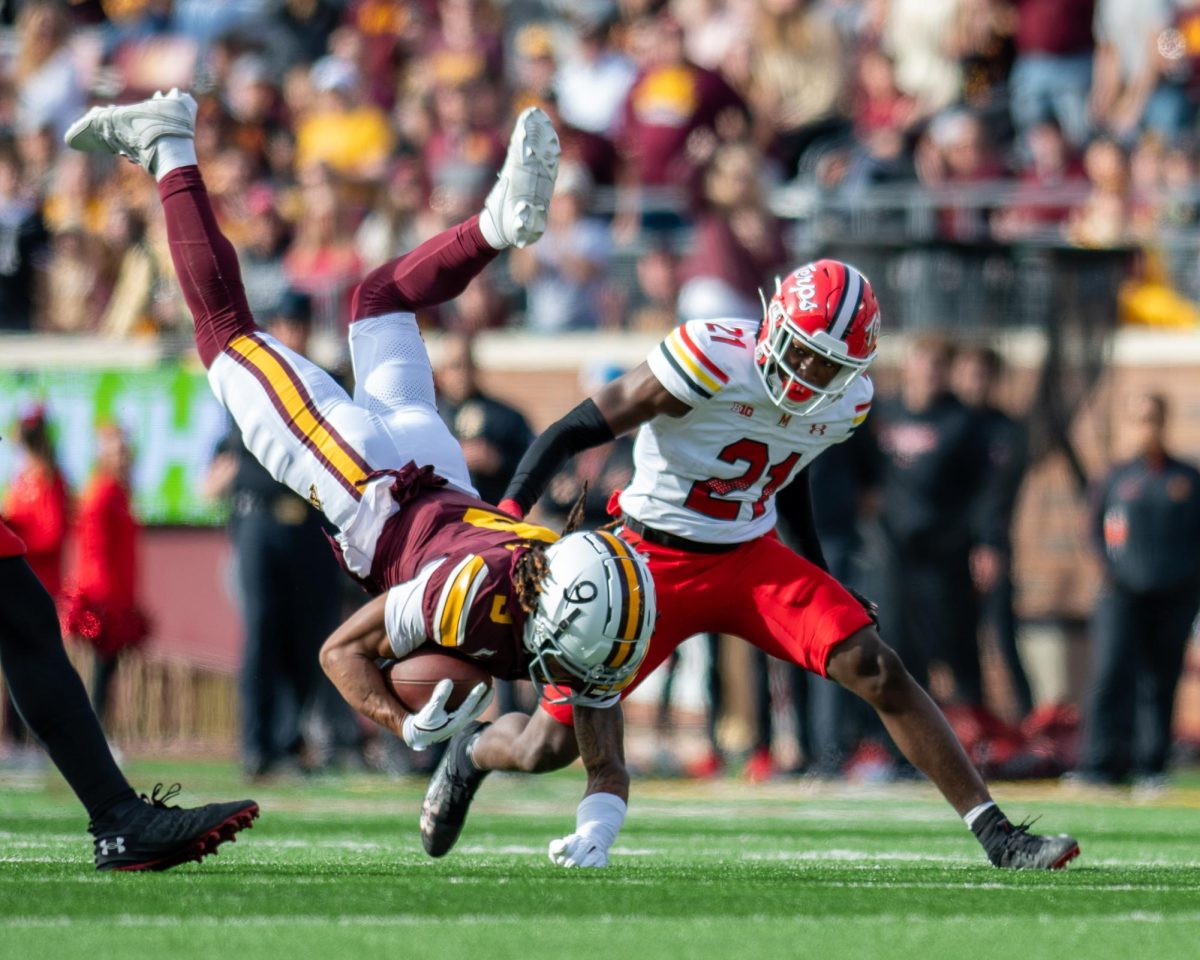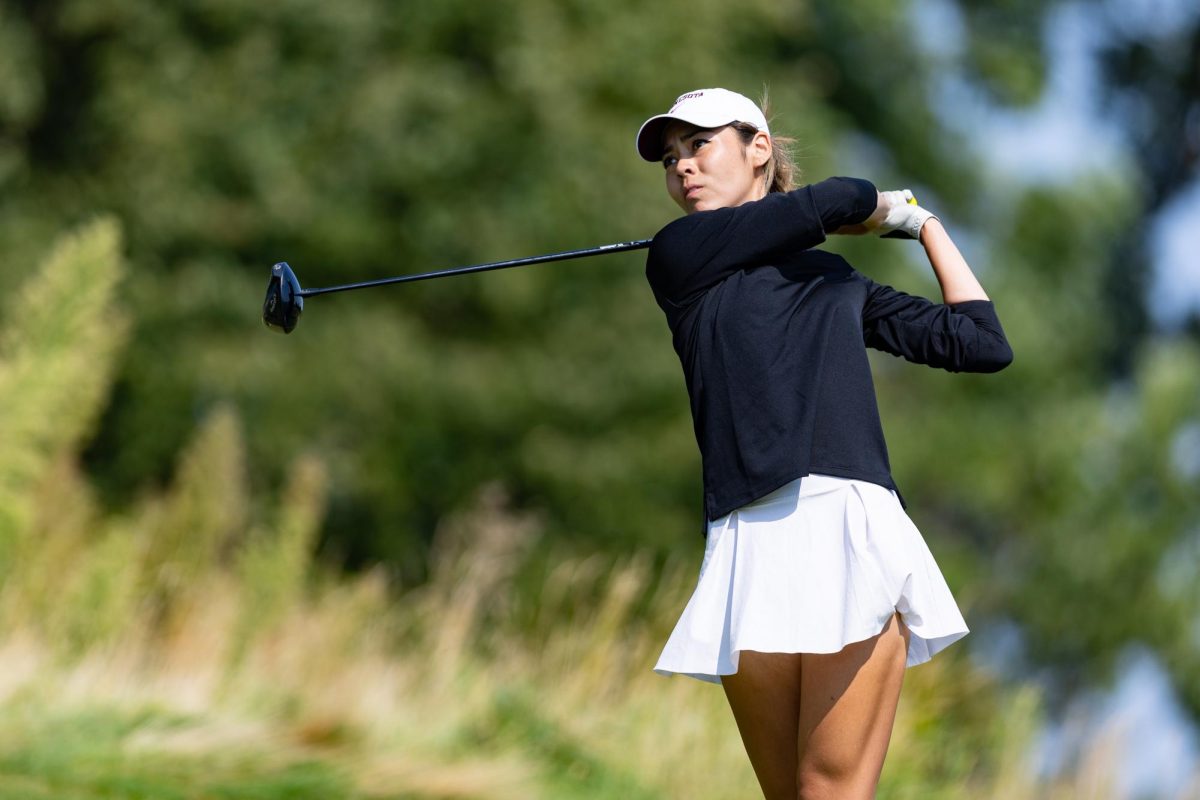Rugby is one of the most violent sports in the world, but Nate Augspurger didn’t pick up his first major injury until February.
The former University of Minnesota club player got into the sport at age 12. Now as a 23-year-old on the U.S. Men’s Sevens team, Augspurger is recovering from a broken fibula and ligament damage that required a plate and six screws to heal.
Augspurger injured himself while playing for a U.S. developmental team after an opponent tackled him and landed on Augspurger’s ankle.
“Not an ideal rugby tackle, let’s put it that way,” Augspurger said. “It wasn’t cheap or anything like that. Just … that’s how tackles happen sometimes.”
The bone took six weeks to heal, and now Augspurger is facing eight to 10 weeks of recovery.
But Augspurger said he is channeling Minnesota Vikings running back Adrian Peterson, who dominated the NFL a season after tearing his anterior cruciate ligament. Augspurger is aiming for a six- to eight-week recovery in hopes of making the U.S. Rugby World Cup team at the end of June in Moscow. He also has his sights set on the 2016 Olympics.
While his goals may seem lofty, Augspurger’s former coaches and teammates said he’ll come back from this injury stronger.
“He had the talent, but there’s a lot of kids who have the talent,” University men’s club rugby coach Loren Lemke said. “The thing that breaks Nate from everyone else is his work ethic.
“I think for me as a coach, Nate’s probably a player I’ll be lucky enough to see once every 10 years.”
Drive to thrive
Augspurger doesn’t look like a typical rugby player at 5 feet 8 inches and 165 pounds. But his size has never held him back.
“It’s definitely inspirational,” former University teammate and current senior co-captain Peter Makredes said. “I worked out with Nate for over a year. … I’m 185 [pounds], and he can beat me in the weight room every day.”
Augspurger started his career playing on the wing, but his former youth coach and mentor Sam Robinson — who played professional rugby in his native Samoa and in Australia — helped him transition to his current playmaking position, the scrum-half.
“He was a little tiny kid on the wing,” Robinson said. “He just reminds me of myself because I played high-level rugby back in Australia and stuff, and I was the smallest guy on the field.
“And when I saw him I knew he was small, but I knew he was something special.”
U.S. national team coach Alex Magleby said most scrum-half players shy away from contact, but Augspurger excels at defense and tackling.
“He’ll tackle anyone,” Lemke said. “He’ll tackle the biggest guy on the field.”
Senior Dominic McQuerry, a former University club teammate of Augspurger’s and current co-captain, played against Augspurger in high school before they joined forces in college.
“They ended up just destroying us, and he was a big reason for that,” McQuerry said. “He’s the best player I’ve ever played with or seen play with my own eyes.”
Augspurger went to nationals twice with the University club team and was a Midwest Collegiate All-Star in 2010 and 2011 for rugby union, the more traditional form of the sport.
Each team in rugby union fields 15 players during two 40-minute halves. But Augspurger is more interested in rugby sevens, a form in which each team fields seven players in two seven-minute halves.
Augspurger played men’s sevens for a Minneapolis club in the summers and earned honors such as Midwest Men’s All-Star in 2009, 2010 and 2011, and Collegiate All-American in 2012.
These awards put him on USA Rugby’s radar and earned him an invitation to try out for the national team last September.
Augspurger knew by his freshman year of college that he wanted to pursue rugby as a career, but he decided to finish his sociology degree last spring before making the professional jump.
“In addition to him being an extraordinary athlete, his work ethic is just amazing,” Makredes said. “He didn’t have to finish college in order to get to where he was, but he did it, and he did it with flying colors.”
Road to Rio
Augspurger moved to San Diego, Calif., for a month in September to try out for the team with no guarantee he would make the roster.
But Augspurger impressed coaches enough to earn a contract through the USA Men’s Sevens Residency Program. He is one of the younger players on the 18-man roster, but Magleby said Augspurger’s talent isn’t going unnoticed.
“He’s a grinder type of a player,” Magleby said. “So [he] works very hard in training and in the match.”
Magleby said there are five scrum-half players on the national team competing for one starting position, making it the most competitive position. But Augspurger made the top 12 on the team for two tournaments before his injury.
Augspurger said his first tournament in Dubai, United Arab Emirates in late November didn’t make him a breakout star, but it provided the experience he needed to gain confidence and playing time.
“It definitely made me fall in love with it,” Augspurger said. “To go on an international trip and be on the international scene — I know I can compete at that level now.”
Even before he went to his second tournament in South Africa last December, his dad, Andy Augspurger, realized his son had made it.
Andy Augspurger started playing rugby when Nate and his older brother were toddlers. He introduced his son to the sport that Nate is now making a career.
“When he was in Dubai … his mom and I were watching him on the computer streaming, and he’s starting, and we’re like, ‘Oh my God, there’s our little boy out there,’” Andy Augspurger said. “You know what? He looked like he belonged. And in my book, that’s all that mattered.”
While Nate Augspurger is just starting his national team career, his goal is to make the 2016 Summer Olympic Games in Rio de Janeiro. Rugby sevens will make its first appearance at the upcoming Summer Olympics after the International Olympic Committee adopted it in 2009.
Rugby isn’t as popular in the U.S. as in other countries, but Magleby said USA Rugby is preparing the national team for a quick rise to the top of the world rankings, with goals to be top 12 this year, top eight next year and top four in 2015.
“Our goal is to win the gold in 2016,” Magleby said, “and there’s no doubt we can do it.”
The team’s high hopes come with intense competition for spots on the Olympic roster.
“[Nate] has competition, which is good,” Magleby said. “I think that’s how he would want it.”
But Augspurger said he doesn’t just want to make the Olympic team — he wants to be the centerpiece of it.
Along the way, he’s hoping to gain national team experience for rugby union. That would help him play professionally overseas after the Olympics in places like France, Australia, New Zealand or South Africa.
“To me, rugby never gets old. It’s always different,” Augspurger said. “Part of it is that I love it, but part of it I’m trying to improve so I never feel stagnant.
“It’s so much fun.”
Now that Augspurger has put in the work, he said he can finally chase his dreams.
“I’ve got one foot in the door,” Augspurger said. “I’ve just got to keep going.”


